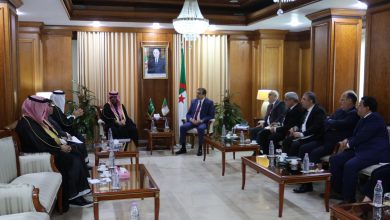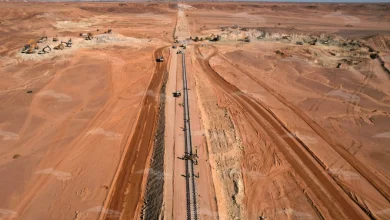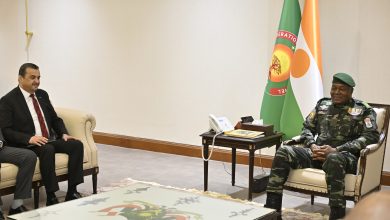Algiers – On Monday, December 23, 2024, the Algerian Minister of Energy, Mines, and Renewable Energies, Mohamed Arkab, confirmed that the framework agreements renewed by Sonatrach with several state-owned holding companies and industrial groups would reduce imports and foster innovation. This initiative is part of a comprehensive plan by the Ministry to promote partnerships between the energy sector’s enterprises and other national institutions.
During an event held at Sonatrach’s headquarters focusing on enhancing national integration, six framework agreements were renewed. These agreements were signed between Sonatrach and the following entities: the Local Industries Group “Defendos,” the National Iron Company “SNS” (formerly “Imetal”), the Algerian Holding for Chemical Specialties, the Mechanical Industries Group “AGM,” the Electronics, Home Appliances, and Electrical Industries Holding, and the Textiles and Leather Industries Holding.
The signing ceremony was attended by the Minister of Industry and Pharmaceutical Production, Sifi Gharib, Sonatrach CEO Rachid Hachichi, and CEOs of the involved groups, along with senior officials from the energy and industry sectors.
Boosting Local Production and Reducing Imports
Minister Arkab emphasized that these agreements reaffirm Sonatrach’s commitment to supporting local content by prioritizing national production capacities. This approach aims to meet needs based on standards of quality, cost efficiency, and timeliness, while minimizing dependence on imports, except for raw materials or components unavailable locally.
He also highlighted the agreements’ role in enabling industrial groups to provide Sonatrach with competitive and high-quality services and products. The minister explained that these partnerships aim to maximize the contribution of national production in Sonatrach’s value chain, reduce expenses linked to importing goods and services, and help conserve foreign currency.
Encouraging Innovation and Economic Growth
The agreements are also geared toward fostering innovation, competitiveness, and quality by supporting Algerian start-ups and medium-sized enterprises. They are intended to elevate technological expertise across Sonatrach’s operations in the hydrocarbon value chain.
Minister Arkab underlined that the national integration policy represents a holistic vision aimed at achieving sustainable economic and social development. This strategy focuses on creating high-quality employment opportunities, enhancing the competitiveness of local companies, and developing domestic skills.
He noted that the Ministry has implemented a government-backed program to enhance local content, directing sector companies to adapt their contracts and encourage partnerships with national firms, particularly small, medium, and emerging enterprises.
A Strategic Vision for Long-Term Growth
Sonatrach CEO Rachid Hachichi stated that the agreements align with Sonatrach’s medium- and long-term development plan. This vision promotes local content, spurs growth opportunities, and generates wealth for Algerian enterprises.
Sonatrach is committed to creating a supportive environment for Algerian companies, enabling them to enhance their competitiveness within the hydrocarbon value chain and meet the international standards required in the oil and gas industry.
Hachichi added that this approach aims to foster a sustainable economic dynamic that strengthens the national industrial sector’s position in supply chains, reduces reliance on foreign sources, and minimizes imports, except for raw materials or components unavailable domestically.
He further noted that the framework agreements, first established between 2017 and 2018, had proven effective in bolstering the national industrial fabric. The renewal of these agreements demonstrates a belief in the importance of cross-sector collaboration to overcome challenges and achieve Algeria’s development aspirations.
The renewed agreements, set to last three years, include provisions for joint committees to oversee and evaluate their implementation.
For more updates, visit DZWATCH.DZ.
Author: Nor-Eleslam




